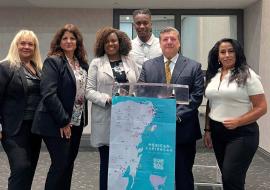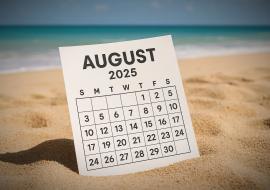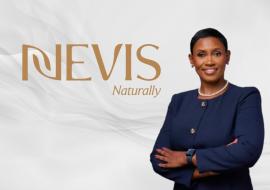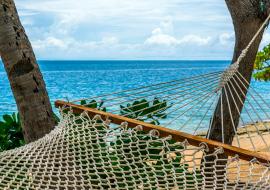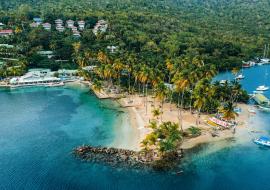Trump’s New Cuba Policy Doesn’t Shut Cuba Down
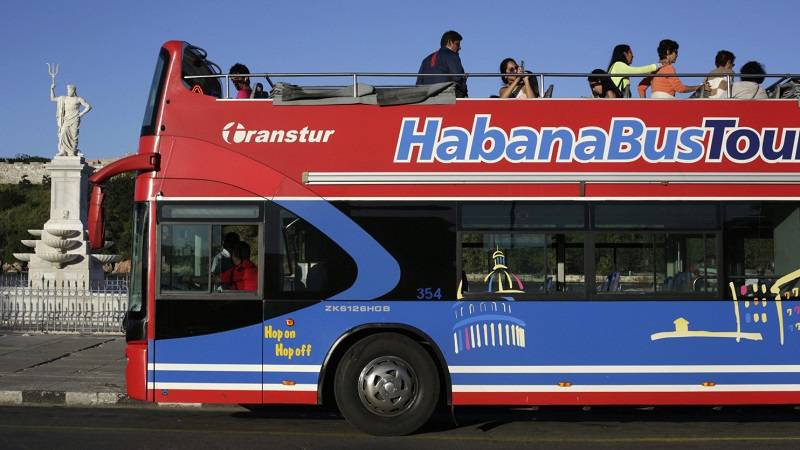
The day President Trump announced he was canceling Obama’s “deal” to open travel to Cuba, Tom Popper, president of insightCuba and one of the leading tour operators for Cuba, was happy:
“In terms of Cuba travel, we feel like we dodged a serious bullet. It could have been a lot worse.”
Given the politics of Trump’s election and the importance of keeping the Cuban exile community in his constituency, something had to change.
“I feared much worse,” said Popper. “With two senators, Marco Rubio and Mario Diaz—who don't want rapprochement, who are anti-engagement and anti-travel—advising the president on the future of Cuba policy, the picture could have looked a lot different.”
It was a step backwards, Popper acknowledges, but that is just part of the standard seesaw effect of Cuban politics on the American political landscape. Ironically, every change in policy causes insightCuba’s phones to start ringing.
“Every time there is a change in administrations it creates a news cycle and we get a lot of calls,” said Popper. “We already saw it this time. Halfway through Trump’s speech we started getting calls. Everything is increasing: calls, inquiries, bookings…”
The one clear difference in the new policy is the elimination of individual travel.
“Self-serve individual travel is gone,” said Popper. “We don't like it, but that we anticipated. If changes were forthcoming, we knew that would be on the table. But there was also a distinct possibility that we would lose commercial air, or cruise, or have to go back to commercial licensing. It could have even gone further and eliminated People to People travel altogether.”
This all leads to one standard question: I was an individual traveler. Now what do I do?
Hotel Restrictions
The Trump administration indicated that it would issue prohibitions against doing business with Cuban military, intelligence or security services, and some of the hotels are affiliated with these agencies.
Since the administration did not issue the specifics on the policy, there remains some confusion until it fills in the blanks, which it is expected to do within 90 days.
“The president’s announcement last week helped answer some of the larger questions surrounding travel to Cuba," said Katharine Bonner, a senior VP of Tauck, "but it raised a number of lesser questions that we’ll have to sort through as the specifics of his revised policies become known."
“It’s unclear as to what the language means in the OFAC [Office of Foreign Assets Control] FAQ sheet about doing business with Cuban military, intelligence, or security services,” said Popper. “While there is a lot of speculation that this means that certain hotels might be off limits, this doesn’t indicate that all state-run hotels are prohibited.”
The Trump administration’s FAQ sheet on the policy change indicated that a list of Cuban businesses will be provided, but no list is available yet.
“We’ll have to wait and see what’s on that list,” said Popper. “As far as insightCuba is concerned, we don’t have any direct business with the Cuban military, intelligence or security services, so I don’t imagine this list will have much of an impact.”
“The trickiest part for me is the hotels,” said Elizabeth Loftus, a private travel designer for Alluring Cuba.
“Gaviota (largest Cuban travel group controlled by the military) owns 75 percent of the hotel rooms all over the island, and the new regulations prevent Americans from staying in those hotels. So the options are limited, and where there was a deficit in availability before it's probably going to be much harder and the planning window will need to be at a minimum of three months out to guarantee space.
"I won't be able to pull off trips for clients in three weeks anymore.”
Increased Need for Ground Services
There is some windfall to the current change for tour operators and cruise operators: Those who wanted to travel independently will now need to travel with them.
American policy toward travel to Cuba has been a rat’s nest of confusion since it first opened up in the 1990s. Travelers are actually dealing with the danger of violating federal offenses under the embargo, and that fact has made the service of tour operators much more important than under normal, unregulated circumstances virtually anywhere else.
“There is so much ambiguity in traveling to Cuba,” said Popper. “If you are traveling as an individual, how do you book hotels? Do you bring cash? What is legal people-to-people activity?”
Tour operators wasted no time issuing statements to reassure prospective travelers to Cuba and to answer their questions.
In a statement, Keith Baron, president of Abercrombie & Kent, said, “We do not expect our people-to-people cultural exchanges to be affected by the new regulations as participants are engaged in a full-time schedule of activities designed to inform, educate and promote meaningful interaction with the people of Cuba.”
Michael Goren, CEO of Group IST, said that the company’s Cuba cruise tours, operated in partnership with Variety Cruises, “are compliant with the new policies announced by the current administration and are moving full steam ahead.”
The company houses passengers on yachts that carry from 50 to 72 passengers, so any changes in policy regarding hotels will not affect the operation.
Celestyal Cruises also will avoid any accommodation issues that may emerge when the final regulations are released by OFAC.
“Celestyal Cruises is very pleased to share that the company's Cuba cruise program is fully in compliance with the Trump administration changes regarding travel to the island nation,” the company said in a statement.
Confusion in the Marketplace
Confusion will cause some travelers to wait, according to Dan Austin, president of Austin Adventures:
“Yes, the change in policy has and will affect our business. It’s mostly just the lack of clarity, so we’re getting a lot of questions from guests that are already booked. Those who are interested but have not booked are likely to take a wait-and-see position.”
“We are seeing some momentary confusion in the marketplace, as has been the case with past Cuba changes, said Bob Drumm, president of Alexander + Roberts. This time, perhaps it will be a bit extended since we await specific guidance from OFAC.”
“Like all, we are waiting for OFAC to publish the new regulations sometime between 30 and 90 days from now, with the names of the ‘forbidden entities.’ said Ronen Paldi, president of Ya’lla Tours.
“Once it is all published we will evaluate how to continue selling legal travel to Cuba.”
Source: Travel Pulse







